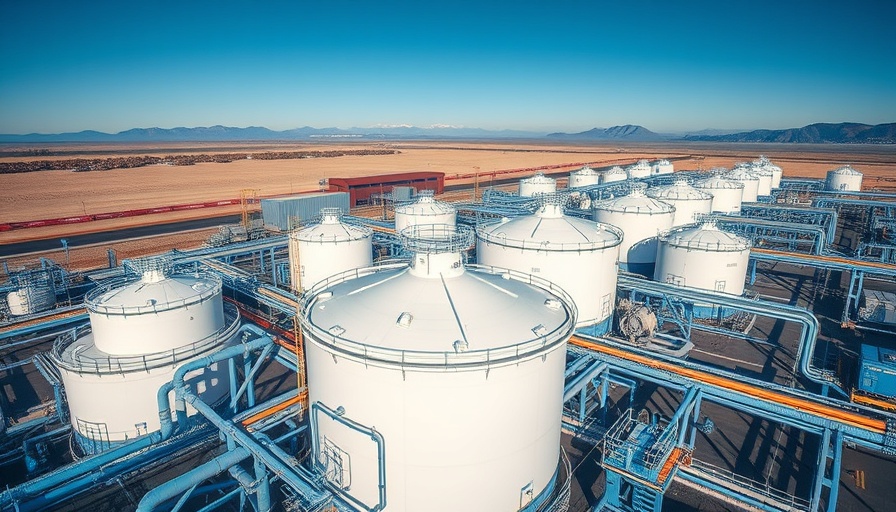
Woodside Energy's Strategic Assessment Amid Tariff Challenges
Woodside Energy is currently evaluating the potential impacts of tariffs on its Louisiana LNG project. This project represents not only an avenue for energy production but also a key player in the global liquefied natural gas market. Tariffs, which can significantly raise costs, pose challenges to profitability and project feasibility, especially in a time where financial scrutiny is paramount.
The Role of Tariffs in the Energy Sector
Tariffs traditionally serve as a way for governments to protect local industries. However, for international projects like Woodside's LNG initiative, they can translate into heightened operational costs that may ultimately deter investment. As the world leans towards cleaner energy, understanding how tariffs affect natural gas projects versus renewables is essential.
LNG: The Energy of the Future?
Natural gas is often hailed as a bridge fuel in the transition to renewable energies. However, factors such as volatile tariffs could complicate its role. While it has lower emissions compared to coal, the economic dynamics of LNG production must remain competitive, especially in the context of climate change initiatives and the push for sustainable energy sources.
Emerging Market Trends and Future Predictions
Looking ahead to 2025, analysts project that the demand for clean energy will only strengthen. As countries implement further regulations on emissions, natural gas has the potential to play an increasing role. However, if tariff barriers remain high, the viability of projects like Woodside's could be jeopardized. Keeping a close watch on global energy trends will provide insights into how LNG may evolve.
Real-World Applications and Implementation Challenges
Beyond Woodside's ambitions, tariffs can have ripple effects throughout the energy sector. Companies must consider these dynamics when moving forward with projects. Innovative approaches, such as renegotiating supply chains or seeking alternative financing options, can mitigate these risks. Understanding case studies where companies faced similar challenges can provide valuable lessons.
The Bigger Picture: Navigating Economic Uncertainties
In today’s economic climate, investors and companies alike must navigate a patchwork of regulations and financial pressures. Woodside's decision-making process is a reflection of broader economic uncertainties. Staying agile in strategy will be crucial as projects progress.
Taking Action: What Can Stakeholders Do?
For stakeholders, understanding the intricacies of tariffs might just be the key to success. Engaging in dialogue, advocating for favorable policies, and exploring innovative partnerships are essential steps. The discourse surrounding natural gas projects needs to evolve to reflect changing global energy priorities.
This unfolding narrative surrounding Woodside's Louisiana LNG project is not merely a regional concern; it's a national narrative intertwined with global energy dynamics. Keeping informed will empower stakeholders to influence outcomes, and shaping the future starts now.
 Add Row
Add Row  Add
Add 




Write A Comment